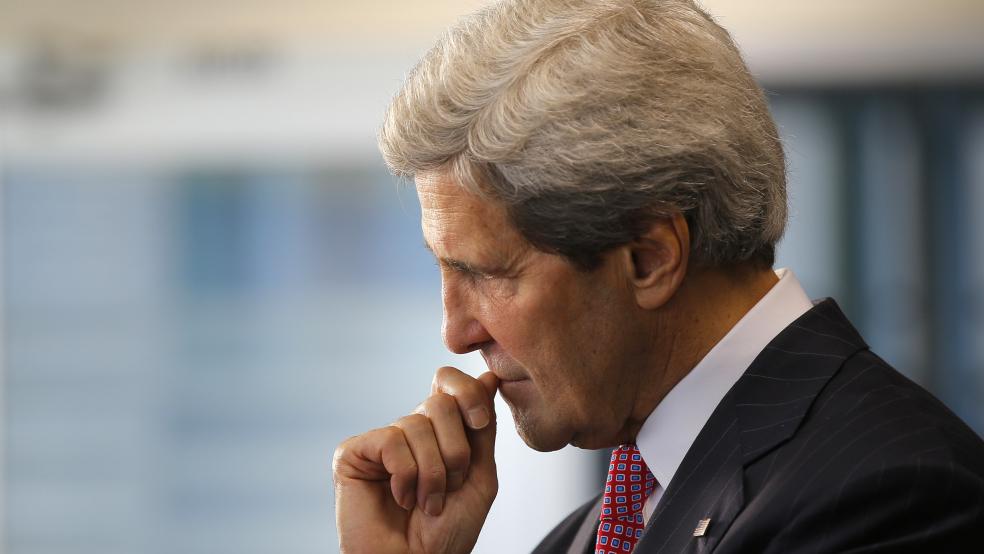The president, of course, is the dominant player in Washington, and much of what President Obama said and did this year – from the Syrian crisis and the IRS scandal to a nuclear deal with the Iranians and the colossal blundering rolling out of Obamacare – all captured the national spotlight.
Yet others in many ways did as much or more to reshape the political debate, including an obscure government contractor with a high security clearance and a laptop filled with unimaginable government secrets.
Related: Election 2016: Guess Who’s Challenging Christie for the Top Spot?
Even before Obama had finished delivering his second inaugural address in January, the political and media rumor mills began revving up about the likely Democratic and Republican field for the 2016 presidential campaign – a full three years off. A popular storyline quickly emerged that the Democratic presidential nomination was Hillary Clinton’s for the asking, while Republicans – suffering buyer’s remorse from their choice of Mitt Romney in 2012 – likely would choose between a crop of fresh-faced Republican governors with practical government experience and a couple of newly arrived Tea Party darlings in the Senate.
While many others can rightly claim the mantle of a political “mover and shaker,” here are The Fiscal Times’s choices for 2013:
 1. Edward Snowden – Some call him a traitor, some call him a patriot. But the former NSA contractor, now ensconced in Russia, has turned the national security and international diplomatic world upside down with his seemingly endless series of embarrassing and highly sensitive intelligence data dumps. Snowden’s revelations have forced President Obama to confront critics both at home and abroad about U.S. intelligence overreach and snooping.
1. Edward Snowden – Some call him a traitor, some call him a patriot. But the former NSA contractor, now ensconced in Russia, has turned the national security and international diplomatic world upside down with his seemingly endless series of embarrassing and highly sensitive intelligence data dumps. Snowden’s revelations have forced President Obama to confront critics both at home and abroad about U.S. intelligence overreach and snooping.
 2. Chris Christie - The straight-talking, rotund New Jersey governor’s impressive reelection victory in November overnight catapulted Christie to the front of the pack in the early going of the 2016 GOP presidential contest. With his strong showing among moderates, women, independents and Hispanics, Christie may be taking a page from former President George W. Bush, who used his 1998 gubernatorial reelection in Texas to make himself the favorite for the 2000 GOP presidential nomination. But Christie may prove to be too moderate for his party with his kumbaya talk of working with Democrats. And some conservatives are still bitter that he cozied up to President Obama to secure hurricane relief for New Jersey at a critical juncture in the presidential campaign.
2. Chris Christie - The straight-talking, rotund New Jersey governor’s impressive reelection victory in November overnight catapulted Christie to the front of the pack in the early going of the 2016 GOP presidential contest. With his strong showing among moderates, women, independents and Hispanics, Christie may be taking a page from former President George W. Bush, who used his 1998 gubernatorial reelection in Texas to make himself the favorite for the 2000 GOP presidential nomination. But Christie may prove to be too moderate for his party with his kumbaya talk of working with Democrats. And some conservatives are still bitter that he cozied up to President Obama to secure hurricane relief for New Jersey at a critical juncture in the presidential campaign.
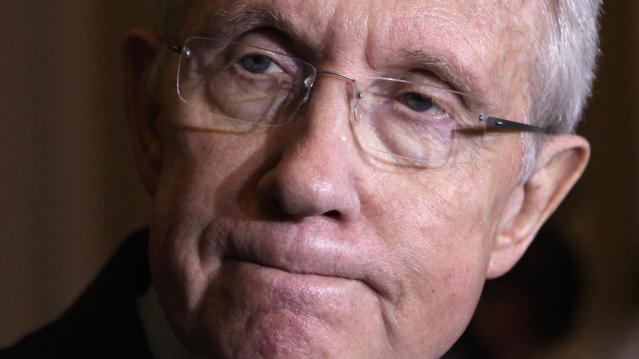 3. Harry Reid – The scrappy Democratic Senate Majority Leader, a one-time boxer from Search Light, Nev., shook up Washington late this fall by finally making good on a threat to blow up the Senate filibuster. Fed up with Republican stalling tactics on Obama administration judicial and executive branch nominations, Reid used the “nuclear option” by ramming through an historic change in the rules with a simple majority of Democratic members. Republican leaders have threatened retaliation, but Reid doesn’t seem the least bit scared.
3. Harry Reid – The scrappy Democratic Senate Majority Leader, a one-time boxer from Search Light, Nev., shook up Washington late this fall by finally making good on a threat to blow up the Senate filibuster. Fed up with Republican stalling tactics on Obama administration judicial and executive branch nominations, Reid used the “nuclear option” by ramming through an historic change in the rules with a simple majority of Democratic members. Republican leaders have threatened retaliation, but Reid doesn’t seem the least bit scared.
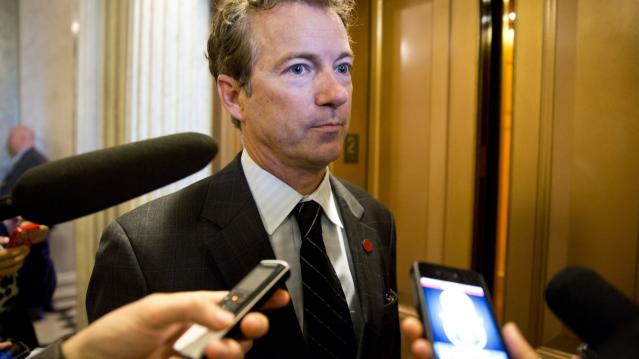 4. Rand Paul – The well-spoken, curly-haired darling of libertarians and the Tea Party wasted little time establishing himself as a GOP player after arriving in the Senate last January. Paul led a 13-hour-long filibuster to protest drone strikes that drew national attention. He was an early opponent of a military strike against Syria. He commands the ear of fellow Kentuckian Mitch McConnell, the Senate Minority Leader. And he is an extraordinary speaker and fundraiser – all strong attributes for a man harboring presidential ambitions. His biggest misstep so far was getting caught using plagiarized material in some of his speeches.
4. Rand Paul – The well-spoken, curly-haired darling of libertarians and the Tea Party wasted little time establishing himself as a GOP player after arriving in the Senate last January. Paul led a 13-hour-long filibuster to protest drone strikes that drew national attention. He was an early opponent of a military strike against Syria. He commands the ear of fellow Kentuckian Mitch McConnell, the Senate Minority Leader. And he is an extraordinary speaker and fundraiser – all strong attributes for a man harboring presidential ambitions. His biggest misstep so far was getting caught using plagiarized material in some of his speeches.
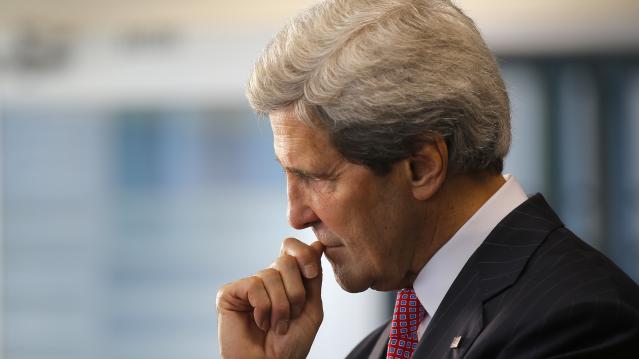 5. John F. Kerry – The former Massachusetts senator landed his dream job early this year when President Obama tapped him to succeed Hillary Clinton as Secretary of State. Within months, the peripatetic Kerry began to crowd out memory of Clinton’s tenure. Kerry negotiated a deal through the Russians to eliminate Syria’s chemical weapons that averted a possible U.S.-led air strike; revived peace talks between Israel and the Palestinian Authority, and secured an interim agreement with Iran to ease some sanctions (although that is coming under fire from Republicans and Democrats alike on Capitol Hill). Still, there have been stumbles, as when Kerry sought to reassure allies and Americans that an air strike against Syria, if it were to happen, would be “unbelievably small.”
5. John F. Kerry – The former Massachusetts senator landed his dream job early this year when President Obama tapped him to succeed Hillary Clinton as Secretary of State. Within months, the peripatetic Kerry began to crowd out memory of Clinton’s tenure. Kerry negotiated a deal through the Russians to eliminate Syria’s chemical weapons that averted a possible U.S.-led air strike; revived peace talks between Israel and the Palestinian Authority, and secured an interim agreement with Iran to ease some sanctions (although that is coming under fire from Republicans and Democrats alike on Capitol Hill). Still, there have been stumbles, as when Kerry sought to reassure allies and Americans that an air strike against Syria, if it were to happen, would be “unbelievably small.”
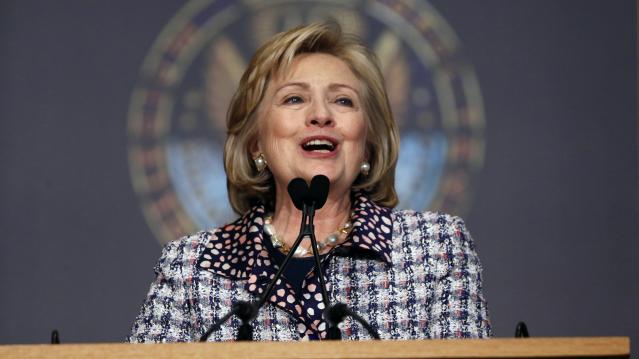 6. Hillary Clinton – The former first lady has the best of all worlds: No longer under fire by the GOP for her role as Secretary of State, Hillary Clinton is traveling the country, picking up speaking fees and stoking interest in a possible second bid for the Oval Office in 2016. Right now, she’s the prohibitive favorite to win the Democratic nomination in 2016 if she chooses to run, leaving her nearest potential rival – Vice President Joe Biden – in the dust. Experts agree she has vast experience at the highest levels of government and is married to the best political consultant in America. But her strength is also a source of weakness: At 65, she could also seem like “yesterday’s news and a throwback to the past,” as one prominent GOP consultant recently noted.
6. Hillary Clinton – The former first lady has the best of all worlds: No longer under fire by the GOP for her role as Secretary of State, Hillary Clinton is traveling the country, picking up speaking fees and stoking interest in a possible second bid for the Oval Office in 2016. Right now, she’s the prohibitive favorite to win the Democratic nomination in 2016 if she chooses to run, leaving her nearest potential rival – Vice President Joe Biden – in the dust. Experts agree she has vast experience at the highest levels of government and is married to the best political consultant in America. But her strength is also a source of weakness: At 65, she could also seem like “yesterday’s news and a throwback to the past,” as one prominent GOP consultant recently noted.
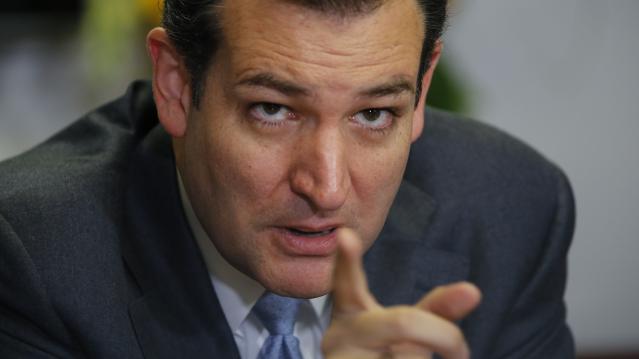 7. Ted Cruz – With the possible exception of Rand Paul, it’s hard to think of another senator who made a bigger splash - or stepped on more toes – during his first few months in office as Cruz. The Texas GOP firebrand has elbowed his way into just about every hot controversy in Washington, including last summer’s IRS and Benghazi, Libya, controversies. And by stoking opposition to Obamacare among conservative House Republicans and leading a faux filibuster on the Senate floor against a crucial spending measure, Cruz helped foment a 16-day government shutdown in November. Cruz’s name ID is soaring as he works the banquet circuit and raises millions for a possible presidential campaign. But as a recent Gallup poll suggests, the more people get to know him, the less they like him.
7. Ted Cruz – With the possible exception of Rand Paul, it’s hard to think of another senator who made a bigger splash - or stepped on more toes – during his first few months in office as Cruz. The Texas GOP firebrand has elbowed his way into just about every hot controversy in Washington, including last summer’s IRS and Benghazi, Libya, controversies. And by stoking opposition to Obamacare among conservative House Republicans and leading a faux filibuster on the Senate floor against a crucial spending measure, Cruz helped foment a 16-day government shutdown in November. Cruz’s name ID is soaring as he works the banquet circuit and raises millions for a possible presidential campaign. But as a recent Gallup poll suggests, the more people get to know him, the less they like him.
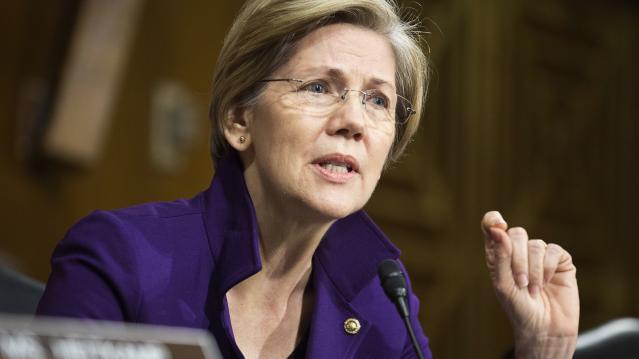 8. Elizabeth Warren – The former Harvard law professor and consumer protection champion would be a dream presidential candidate for many liberal Democrats who are not totally enamored with Hillary Clinton – if only she wanted to run. But for now, at least, the freshman Massachusetts senator insists her prime concern is promoting the interest of the middle class and consumers and holding Wall Street’s feet to the fire to meet the new requirements of the Dodd-Frank financial reform legislation. “I pledge to serve out my term,” which ends at the beginning of 2019, she told reporters recently. But of course the presidential election is a long way off, and a lot can happen between now and then.
8. Elizabeth Warren – The former Harvard law professor and consumer protection champion would be a dream presidential candidate for many liberal Democrats who are not totally enamored with Hillary Clinton – if only she wanted to run. But for now, at least, the freshman Massachusetts senator insists her prime concern is promoting the interest of the middle class and consumers and holding Wall Street’s feet to the fire to meet the new requirements of the Dodd-Frank financial reform legislation. “I pledge to serve out my term,” which ends at the beginning of 2019, she told reporters recently. But of course the presidential election is a long way off, and a lot can happen between now and then.
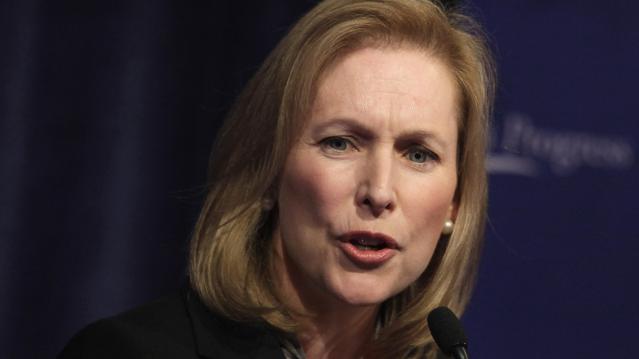 9. Kirsten Gillibrand – The New York Times says that if the U.S. Senate had a “chutzpah caucus,” New York’s junior Democratic senator would be its natural leader. The hard-charging upstate New York politician has relentlessly pushed for passage of her bill to address sexual assault in the military, despite opposition from the military and some senior Democrats. And she is more than willing to step on the toes of her colleagues to raise money or get her way on legislative matters. Gillibrand’s political savvy has quickly brought her national prominence in a chamber in which she has served less than five years and has greatly elevated the issues she has championed.
9. Kirsten Gillibrand – The New York Times says that if the U.S. Senate had a “chutzpah caucus,” New York’s junior Democratic senator would be its natural leader. The hard-charging upstate New York politician has relentlessly pushed for passage of her bill to address sexual assault in the military, despite opposition from the military and some senior Democrats. And she is more than willing to step on the toes of her colleagues to raise money or get her way on legislative matters. Gillibrand’s political savvy has quickly brought her national prominence in a chamber in which she has served less than five years and has greatly elevated the issues she has championed.
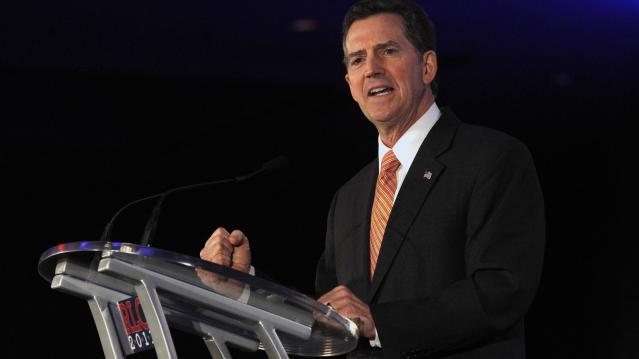 10. Jim DeMint - When the South Carolina conservative abruptly resigned his Senate seat this January four years before the end of his term, some assumed he was simply cashing in by trading the influence of a senator for the paycheck of a lobbyist, the National Journal noted. For sure, the Tea Party advocate is pulling down big bucks, considering that his predecessor at the Heritage Foundation had been paid $1 million a year. But DeMint says he is exerting far more influence over national politics from his perch as the president of the foundation and its political arm, largely by pumping out research papers skewed to buttress his opposition to immigration reform, Obamacare and spending measures like the one forged by Rep. Paul Ryan and Sen. Patty Murray this week. With House Speaker John Boehner and other House GOP leaders suddenly criticizing outside conservative groups for overreach in trying to influence the votes of lawmakers, DeMint may be in for an intra-party donnybrook in the coming year.
10. Jim DeMint - When the South Carolina conservative abruptly resigned his Senate seat this January four years before the end of his term, some assumed he was simply cashing in by trading the influence of a senator for the paycheck of a lobbyist, the National Journal noted. For sure, the Tea Party advocate is pulling down big bucks, considering that his predecessor at the Heritage Foundation had been paid $1 million a year. But DeMint says he is exerting far more influence over national politics from his perch as the president of the foundation and its political arm, largely by pumping out research papers skewed to buttress his opposition to immigration reform, Obamacare and spending measures like the one forged by Rep. Paul Ryan and Sen. Patty Murray this week. With House Speaker John Boehner and other House GOP leaders suddenly criticizing outside conservative groups for overreach in trying to influence the votes of lawmakers, DeMint may be in for an intra-party donnybrook in the coming year.
Top Reads from The Fiscal Times:
- Why Your Tax Returns Aren't Safe with the IRS
- Why Obama Can't Rescue the Middle Class
- Will the Pope Overthrow Neoliberal Economics?

